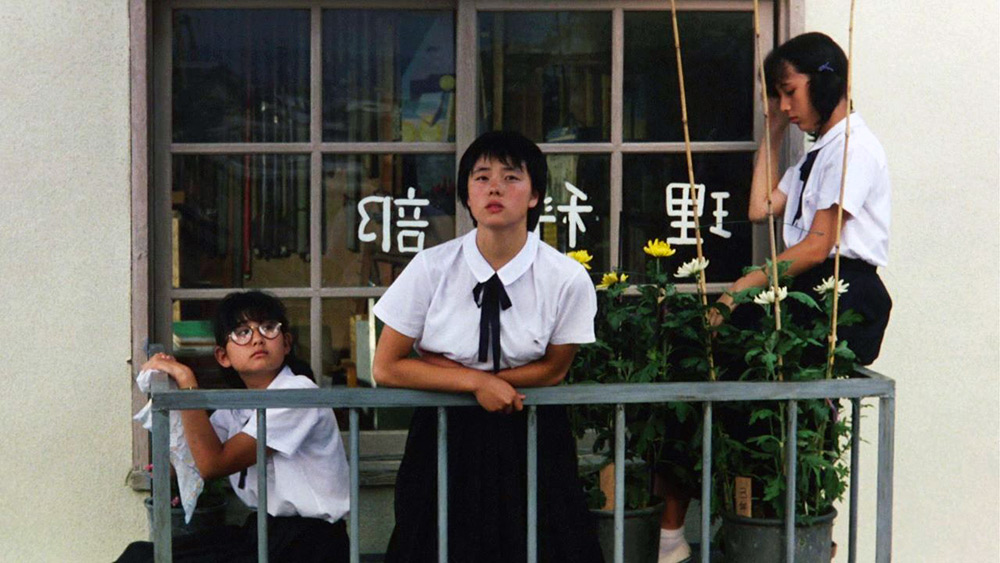When asked about the impact of Shinji Somai on modern Japanese cinema, Ryusuke Hamaguchi stated, “I can say with absolute conviction that no Japanese filmmaker makes a film without being conscious of Shinji Somai’s existence.” Somai’s works present the desire and despair that makes youth such a difficult and emotionally revelatory time, and this is no better crystallized than in what is perhaps his seminal film, 1985’s Typhoon Club.
Taking place over the course of a week, Typhoon Club follows a group of students as they are about to enter their final summer before high school. They acknowledge the cloud of ennui that hangs over their dwindling moments of childhood, but don’t seem to fear the actual cloud caused by the massive storm that’s approaching their rural town. The kids are unable to get home before the typhoon arrives, so they take shelter in the empty school and succumb to their unfettered impulses.
The general concept of teens being transformed by their time locked in school together may sound familiar—in a funny instance of cross-cultural “coming-of-age” cinema serendipity, Typhoon Club came out just a few months before John Hughes’s The Breakfast Club was released in Japan. However, Somai's treatment of his young characters is far from sentimental, and the film strikes a generally uneasy, ominous tenor. Although the kids in Typhoon Club develop some camaraderie through their shared experience, their impulsive, adolescent instincts oscillate between compassion and savagery, their inner turmoil and insecurity intensified (and literalized) by the impending typhoon.
Characters will dance together in one scene and then do something shockingly cruel the next, as evident in a memorable, and disturbing, sequence where one boy chases his female classmate around various classrooms, pursuing her with an eerie and stoic intensity. For a moment, the dynamic appears playful, until it becomes clear he has no intention of stopping. The camera lingers on him as he robotically kicks the locked door the girl is hiding behind, terrorizing her until she is able to escape and find the rest of the group. An event like this is juxtaposed with sweet moments of consensual sexual exploration and the sharing of emotional vulnerability, raising the question of what pieces of the youths will emerge in the world they enter back into once the storm passes.
Typhoon Club screens this evening, June 26, at e-flux Screening Room as part of the series “Economies of Love.” It will be presented alongside Jordan Strafer’s No Spank.



